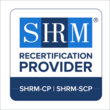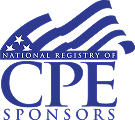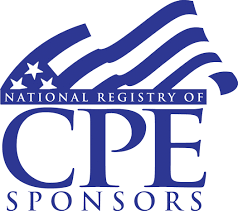Exempt Employees: Taking the Guess Work out of Identifying and Paying Them in 2021/2022

About this Webinar
About Webinar

 1.5 CEUs HRCI | 1.5 PDCs SHRM APPROVED
1.5 CEUs HRCI | 1.5 PDCs SHRM APPROVED
During the last decade or two, employers have found it increasingly difficult to decide which employees are entitled to overtime pay. Those classifications are commonly referred to as exempt employees (those who meet the FLSA’s requirements to be exempt from overtime pay) and non-exempt employees (employees the law requires to be paid overtime).
With a Democratic and pro-employee President now in office, these considerations become even more relevant – and pressing—for employers.
The FLSA contains dozens of exemptions, which basically provide that specific categories of employees and/or positions aren’t subject to the Act’s overtime requirements. Most common are the “white-collar” exemptions for executive, administrative, and professional employees, computer professionals, and outside sales employees.
Many employers think their employees are properly classified as overtime-exempt, only to find out that in fact they are improperly classified, and that their employees are entitled to back pay in the form of overtime pay and the same amount in liquidated damages. In other words, if you owe your employees any wages – either straight or overtime pay—you are on the hook, under the FLSA (federal law) for double that amount. If your employees work in a State with even more stringent wage and hour laws, you could end up paying more.
Wage and hour law in general, and employee classification in particular is very tricky, very nuanced, and contains many pitfalls for even those employers who are otherwise knowledgeable and well-intentioned.
So what are the overtime exemptions exactly? Who qualifies? What must you do to make sure that your employees are properly classified, and, most importantly how can you make sure that your practices comply with the Fair Labor Standards Act so you do not fall prey to a Department of Labor audit – or worse, a lawsuit—resulting in unpaid overtime, liquidated damages, other fines and penalties in addition to your legal fees? Join this webinar and find out!
Session Highlights
- Difference between exempt vs non-exempt employees
- The salary basis test
- The most common exemption categories
- The duties test
- Job Titles and Descriptions
- Discretion
- Supervision
- Authority
- Case examples: Pharma sales reps, Financial services employees
Why You Should Attend
In this webinar, our expert speaker Janette Levey Frisch will help you to understand how to properly classify exempted and non-exempted employees under the FLSA act. She will also help you to understand what does the term “exempted employee” really means? And what you can do to make sure that your practices comply with the Fair Labor Standards Act, (When it comes to the proper classification of employees) so you do not fall prey to the Department of Labor audit.
Who Should Attend
- All Employers
- Business Owners
- Company Leadership
- Compliance professionals
- Payroll Administrators
- HR Professionals
- Compliance Professionals
- Managers/Supervisors
- Employers in all industries
Note: You will get access to the Recording link and E-Transcript; in your account and at your registered email address.
Speaker(s)
Janette S. Levey, “The Employer’s Lawyer” has over 20 years of legal experience, more than 10 of which she has spent in Employment Law. It was during her tenure as sole in-house counsel for a mid-size staffing company headquartered in Central New Jersey, with operations all over the continental US, that she truly developed her passion for Employment Law.
Janette operates under this core belief: It is possible, and it is in an employer’s best interest, to proactively solve workforce challenges before they become problems, before they result in lawsuits or steep fines caused by government audits.
Janette works with employers on most employment law issues, to ensure that employers are in the best position possible to avoid litigation, audits, employee relations problems, and the attendant, often exorbitant costs. Janette authors the firm’s weekly blog, where you can read each week, in plain English (not legalese) about issues impacting employers today. Janette has written articles on many different employment law issues for many publications, including EEO Insight, Staffing Industry Review, @Law, and Chief Legal Officer.
Janette has served on the Workplace Violence Prevention Institute, a multidisciplinary task force dedicated to providing proactive, holistic solutions to employers serious about promoting workplace safety and preventing workplace violence.
Janette currently serves as an Advisory Board Member for Child and Family Resources of Morris County, New Jersey.
Janette has also spoken and trained on topics, such as Criminal Background Checks in the Hiring Process, Joint Employment, Severance Arrangements, Addressing and Preventing Employee Leave Abuse, Pre-Employment Screening among many, many others.
CEUs

The use of this seal confirms that this activity has met HR Certification Institute’s® (HRCI®) criteria for recertification credit pre-approval.
Credits: 1.5

Supreme Trainer is recognized by SHRM to offer Professional Development Credits (PDCs) for the SHRM-CPSM or SHRM-SCPSM. This program is valid for PDC(s) for the SHRM-CP or SHRM-SCP. For more information about certification or recertification, please visit www.shrmcertification.org
Credits: 1.5

Supreme Trainer is registered with the National Association of State Boards of Accountancy (NASBA) as a sponsor of continuing professional education on the National Registry of CPE Sponsors. State boards of accountancy have final authority on the acceptance of individual courses for CPE credit. Complaints regarding registered sponsors may be submitted to the National Registry of CPE Sponsors through its website: https://www.nasbaregistry.org.
Credits: 1.5

Credits: 0
Unlimited Webinars
Why You Should Subscribe to Our Unlimited Webinar?

Unlimited Live and On-Demand Courses
Watch all live or recorded webinars (up to 120 minutes long). Get instant access to a library of more than 500 high quality courses presented by best-in-class presenters.

CEUs: APA, CPE, SHRM and HRCI Credits
Fulfil your recertification requirements by earning CEUs from APA, CPE, SHRM and HRCI.

Free Access to Course Materials
Each program comes with Additional Course Materials, which you can download and read anytime.

Additional Discounts
Get flat 20% discount on Premium Product Category like, Long Hour Webinars.
SUBSCRIBE NOW
